Did you know that the median home price in Raleigh has climbed over 30% since just three years ago, outpacing nearly every major city in the Southeast? Raleigh real estate trends are not just changing—they’re redefining what it means to buy and invest in a fast-moving housing market. If you’re considering a home in Raleigh or want to understand the market pulse, this guide delivers the up-to-date insights and actionable tips you need to stay ahead.
Raleigh Real Estate Trends in 2024: The Unprecedented Shifts in the Raleigh Housing Market
The Raleigh real estate trends of 2024 reveal dramatic shifts that have taken even seasoned experts by surprise. After years of explosive growth, Raleigh’s housing market is experiencing a new era of complexity. While many expected a cooldown after the historic price surges post-2020, buyer demand in Raleigh remains stronger than ever, pressing against tighter housing inventory and fueling competition for homes for sale .
This year, high mortgage rates are squeezing budgets, yet the estate market shows only mild signs of slowing. In fact, the average homes for sale in Raleigh are selling fast—often in days, not weeks—thanks to steady population growth, robust job opportunities, and ongoing appeal to remote workers from more expensive markets. Home prices are holding firm with only minor fluctuations, which makes it vital for both buyers and sellers to track these shifts closely and work with a local real estate agent who can navigate the nuances.

- What this article covers:
- Key Raleigh real estate trends driving the current Raleigh housing market
- Expert insights into future price in Raleigh dynamics and inventory shifts
- Essential tips for buyers from seasoned real estate agents
- Data-driven answers to the most asked Raleigh real estate questions
How Raleigh Real Estate Trends Reflect the State of the North Carolina Housing Market
The full story of raleigh real estate trends isn’t just about city lines—it reflects the heartbeat of the broader North Carolina housing market . As the state’s capital, Raleigh has long been an economic magnet, but now it’s influencing how housing markets across North Carolina adapt.
Rising home prices in Raleigh often foreshadow similar increases in surrounding regions, as families and investors seek affordability and opportunity near the city’s booming tech and medical hubs. Inventory trends in Raleigh set a template: when supply dips here, you’ll soon see tight inventories in the Triangle suburbs and even other metros like Charlotte or Durham. That’s why reading Raleigh’s market means anticipating moves in the entire state.
“When you understand Raleigh real estate trends, you grasp the heartbeat of the entire North Carolina housing market.” – Local estate agent

Key Indicators Defining the Raleigh Housing Market in 2024
What’s happening beneath the surface? Let’s break down the key stats that define the 2024 Raleigh housing market : median home price , housing inventory , and homes sold . These numbers show not only where the market stands but also the direction it’s likely heading.
In contrast to one year ago , Raleigh continues to outpace statewide averages, maintaining a higher median home price and lower days on market for homes for sale . This competitive edge underscores why buyers need to keep a finger on the pulse of Raleigh’s data and why sellers continue to benefit from historically strong demand.
| 2022 | 2023 | 2024 (YTD) | |
|---|---|---|---|
| Median Home Price – Raleigh | $420,000 | $460,000 | $482,000 |
| Median Home Price – North Carolina | $346,000 | $375,000 | $394,000 |
| Housing Inventory – Raleigh (# of listings) | 2,800 | 2,500 | 2,350 |
| Housing Inventory – North Carolina | 19,000 | 17,500 | 15,900 |
| Homes Sold – Raleigh | 14,800 | 13,600 | 11,500 |
| Homes Sold – North Carolina | 117,000 | 111,000 | 99,600 |
Raleigh Home Prices: Past, Present, and Projected Changes in Home Values
Home prices in Raleigh have charted a remarkable course, leaving buyers and investors wondering what comes next. After double-digit gains between 2020 and 2022, the median home price continues to rise—just at a steadier, healthier pace. Recognizing these shifts helps set realistic expectations and avoid surprises, whether you’re aiming to buy, sell, or simply monitor your investment’s worth.
From luxury listings in downtown to family-friendly homes in new developments, every neighborhood is telling part of the story. Local data shows not only upward movement but increasing variation: some districts are experiencing a plateau, while others are surging ahead with rapid appreciation. This dynamic market is a key reason why consulting an expert estate agent is now more crucial than ever.
Median Home Price in Raleigh: A Historical Perspective
The last ten years have redefined the housing market across North Carolina, but nowhere has this transformation been more dramatic than in the Raleigh housing market . If you look back, Raleigh’s median home price hovered near $230,000 in 2014. Fast forward to 2024 and that figure has more than doubled, with the latest reports placing the median home price over $480,000.
What’s causing this acceleration? Several factors: a tech-driven jobs boom, an influx of new residents, and a high quality of life that’s made Raleigh a magnet for families, retirees, and remote workers alike. The result is rapid appreciation in home values —years of gains that have outstripped national averages and set a new bar for the local real estate market .
What’s Driving Home Prices in Raleigh’s Real Estate Market?
Home price in Raleigh is powered by a blend of old and new forces. Classic supply and demand dynamics—especially Raleigh’s low housing inventory —are colliding with a fresh wave of tech companies, university talent, and affluent transplants fleeing pricier cities. This unique blend helps keep home prices resilient, even as national trends fluctuate and mortgage rates rise.
Buyers are bidding up the sale price on desirable homes, confident that durable job growth and healthy population increases will sustain solid long-term home values . Meanwhile, sellers are still commanding high offers, but are advised to temper expectations as price growth becomes more moderate. Both sides benefit from granular, neighborhood-level data and a sharp, up-to-date real estate agent .

Housing Inventory: Is Raleigh Facing A Shortage or a Surplus in 2024?
Many buyers wonder whether the current housing inventory signals a buyers’ paradise or a sellers’ stronghold. Right now, Raleigh’s housing inventory remains avowedly tight. Even with new construction picking up, most months show a low number of homes for sale compared to surging demand. Builders are hustling to add supply, but permit delays and high construction costs mean relief will be slow—and spotty.
Some experts predict a modest easing in inventory later this year, especially as interest rates settle and more homeowners seek to capitalize on their equity. But so far, new home sales haven’t caught up, perpetuating a trend where well-priced homes continue to spark bidding wars. This is critical to understand for anyone considering entering the Raleigh housing market in the coming season.
“A tight housing inventory has tipped the scales in favor of Raleigh home sellers—but are things shifting soon?”
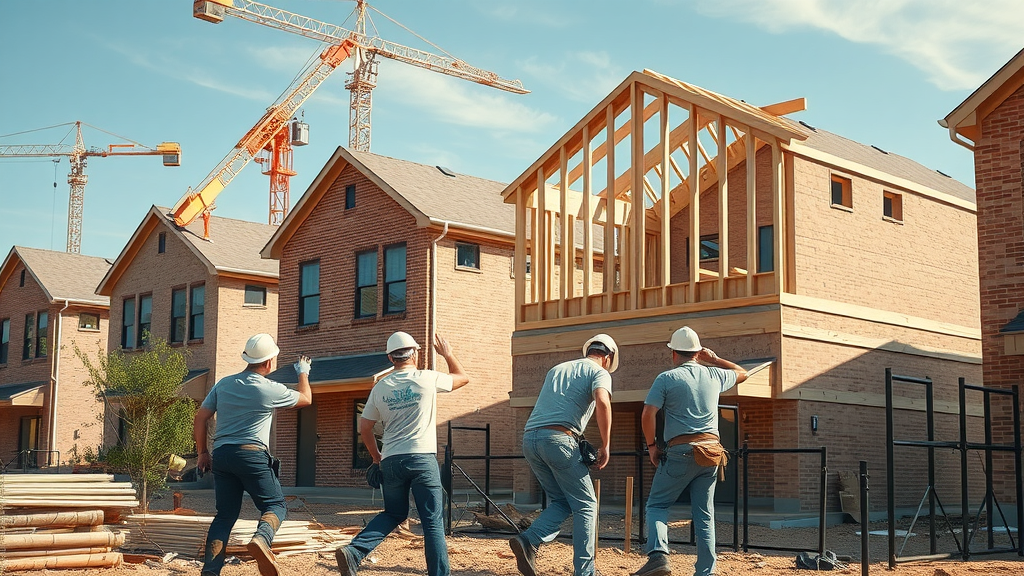
Supply and Demand Forces: What Every Raleigh Home Buyer Must Know
For today’s buyers, the script remains the same: the classic laws of supply and demand dictate that demand outstrips available homes for sale, keeping home prices at a premium. As such, buyers need to act swiftly, prepare financially, and capitalize on every advantage—especially when a great property comes up.
While some may hope that a “buyer’s market” lies on the horizon, all indicators suggest that robust demand for Raleigh lifestyles and job opportunities will keep inventory tight in the foreseeable future. Keeping an eye on economic trends, interest rates, and North Carolina’s broader migration patterns will help you make the best move when the time is right.
Don’t forget that behind every statistic is a human story. The families racing to get into top school districts, the professionals looking for more space, and the investors targeting hot rental markets are all shaping these Raleigh real estate trends . Being aware—and ready—is the best way to stay ahead.
Raleigh Housing Market: Insights for Buyers in Today’s Environment
Buying a home in Raleigh right now is both an exciting and challenging journey. To succeed, buyers should equip themselves with knowledge and strategy.
- Work with a skilled Raleigh real estate agent who knows the local estate market nuances.
- Act quickly on desirable homes for sale as inventory remains tight.
- Prepare financially for competitive bidding and changing home prices.
- Monitor upstream changes in the North Carolina housing market for early warnings.
Each step on this list is rooted in the realities of current supply and demand—for example, homes that check most boxes are selling fast, sometimes before public listing. Working with a responsive agent gives buyers access to off-market listings and makes navigating competitive offers much less daunting. If you want to understand the full value of partnering with a seasoned professional, explore these key reasons to work with an experienced real estate agent in Raleigh’s fast-paced market.

Raleigh Real Estate Agents: Expert Advice on Navigating the Raleigh Housing Market
Local agents have never been more critical. According to seasoned experts, success in the Raleigh housing market is about more than finding a home—it’s about making decisions that stand up to rapid change and fierce competition.
From crafting the perfect offer to deciphering granular market trends, a trustworthy real estate agent offers perspective and strategy that digital listings and spreadsheets never provide. Especially in neighborhoods with rising median home sale prices , agent guidance is the difference between landing your dream home and missing out altogether.
“It’s not just about finding a home in Raleigh—it’s about making a smart investment in one of North Carolina’s fastest-changing markets.”
Location Analysis: Why Homes in Raleigh Outperform Much of North Carolina’s Housing Market
What makes homes in Raleigh such a powerhouse? Much comes down to Raleigh’s unique blend of urban convenience and access to greenspace, top-rated schools, and world-class employers. Even as other North Carolina cities slow, Raleigh’s appeal as a lifestyle destination keeps values resilient and buyer demand high.
With new infrastructure, research parks, and diverse cultural offerings, Raleigh isn’t just keeping up with housing trends—it’s driving them statewide. This performance makes the city’s neighborhoods a favorite among both first-time buyers and experienced investors looking for the next “it” spot in North Carolina real estate.
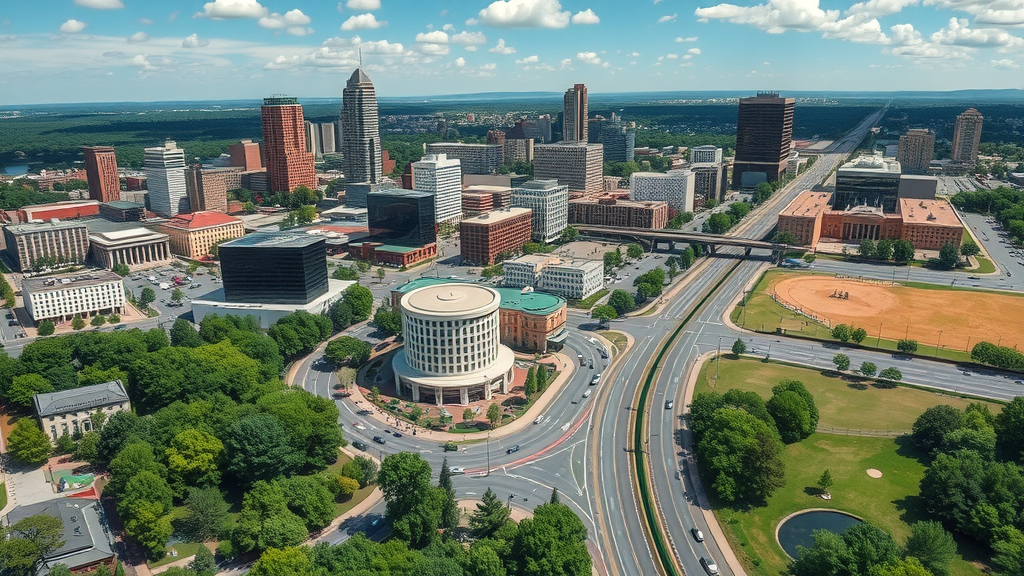
Neighborhood Hotspots: Where Raleigh’s Real Estate Trends Shine Brightest
In such a diverse market, local knowledge matters. The following Raleigh neighborhoods are consistently at the forefront when it comes to rapid appreciation and buyer demand:
- Downtown Raleigh – Urban growth and cultural attractions
- North Hills – Established neighborhoods with solid home values
- Cary/Morrisville – Technology influx and education-driven demand
- Wake Forest – Suburban charm with increasing home sales
Whether you value proximity to nightlife, top-rated schools, or family-friendly parks, these hotspots have consistently led the Raleigh housing market in both price appreciation and quality of life indicators.
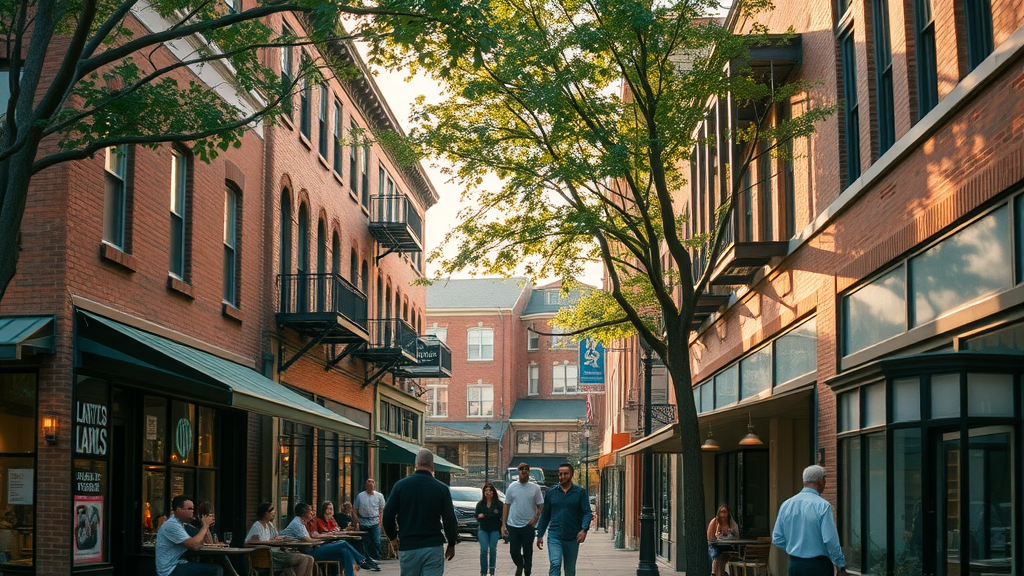
Price in Raleigh: Comparing Urban Versus Suburban Home Prices and Home Values
The price in Raleigh for a home can swing widely depending on whether you’re buying downtown or in the quieter suburbs. Urban living commands a premium, with homes near downtown often fetching higher prices per square foot, due to walkability, culture, and access to public transport. In contrast, suburban zones like Wake Forest or Cary offer more space—and sometimes, more value per dollar—but with intense competition for the most desirable inventory.
For example, typical downtown condos may sell quickly at over $500,000, while a four-bedroom home fifteen minutes out may command a similar price—but with double the square footage and a large yard. Buyers should evaluate both lifestyle and long-term appreciation outlooks, balancing current trends with their personal and family needs.
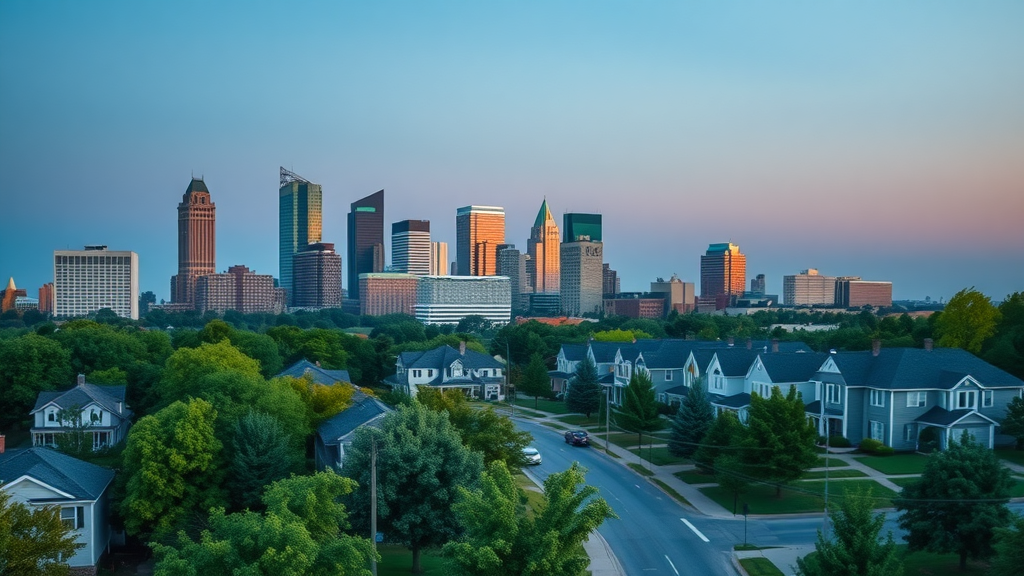
Future Forecast: Are Raleigh Real Estate Trends Set to Continue?
Will the meteoric rise in home prices and tight inventory persist? While no one has a crystal ball, market fundamentals point to continued growth for Raleigh—just at a more sustainable pace. Population inflows, tech expansion, and resilient demand bode well for price stability, though first-time buyers will hope for more reasonable inventory in years ahead.
Observers should expect fewer double-digit jumps in value and a gradual shift towards a more balanced market as new construction and policy catch up with demand. Even so, those looking for a “crash” are likely to wait in vain: Raleigh’s long-term growth story shows little sign of ending.
Video Analysis: Interactive Market Update of Raleigh Real Estate Trends
For those interested in a real-time, interactive breakdown, reputable local agents and brokers frequently publish video updates reviewing current raleigh real estate trends . These updates highlight price shifts, changes in housing inventory , and neighborhood momentum, helping buyers make informed moves in a fast-changing market. Be sure to subscribe to local YouTube channels for ongoing updates.
People Also Ask: Expert Raleigh Real Estate Market Answers
Are home prices dropping in Raleigh, NC?
No, home prices in Raleigh, NC, are holding steady and, in many neighborhoods, slowly rising. After several years of rapid growth, the pace has become more stable. There may be small, seasonal fluctuations, but significant declines are not evident. Tight housing inventory and ongoing demand continue to support current prices.
Is Raleigh a buyers or sellers market?
Raleigh remains a sellers market in 2024. Homes sell quickly due to limited supply and steady buyer demand, so sellers continue to have the advantage. However, a gradual increase in listings may lead to a more balanced market over the next year or two.
Is Raleigh a good place to invest in real estate?
Yes, Raleigh is considered one of the best places to invest in real estate in the Southeast. Strong job growth, an influx of tech and healthcare employers, and sustained population increases provide long-term stability for home values . Investors often see steady returns in both appreciation and rental income.
Are home prices expected to rise or fall in 2025?
Most forecasts suggest home prices in Raleigh will rise moderately in 2025. While not as fast as recent years, ongoing demand and a slowly increasing housing inventory point to continued, sustainable growth. Buyers should be prepared for competition to remain strong.
FAQs: Fast Facts on Raleigh Real Estate Trends
-
What is the current average home price in Raleigh for 2024?
The average home price hovers around $482,000 as of mid-2024, with some neighborhoods trending even higher. -
How quickly are homes for sale going under contract in Raleigh?
Most homes for sale in Raleigh go under contract in less than two weeks, with hot properties lasting just days. -
Which Raleigh neighborhoods have seen the highest home value appreciation?
Downtown Raleigh, North Hills, and Cary/Morrisville have posted the top gains, often exceeding 12% year-over-year. -
How has remote work impacted the Raleigh housing market?
Remote work has boosted demand in Raleigh, as buyers from more expensive metros seek value and lifestyle in the area. -
What should first-time buyers know about Raleigh’s estate agent landscape?
First-timers should choose agents experienced with competitive bidding and off-market deals to gain an edge.
Video Insight: Q&A with a Leading Raleigh Real Estate Agent
Looking for real-world tips and answers? Leading Raleigh real estate agents frequently host Q&A sessions on social platforms, sharing stories of successful bids, insight on price trends, and guidance for both buyers and sellers. Tuning into these can offer insider strategies on thriving in Raleigh’s fast-paced real estate market .
Key Considerations for Prospective Raleigh Homeowners: Recap of the Most Important Raleigh Real Estate Trends
- Stay ahead of changing home prices with real-time market data
- Work with a local real estate agent for expert guidance
- Evaluate neighborhood performance before making offers
- Monitor North Carolina-wide housing market signals
Keeping these points top of mind can help anyone—from first-time buyers to experienced investors—optimize their strategies and avoid costly missteps in a dynamic market.
Reflecting on Raleigh‘s Housing Market: Author’s Perspective on the Art—and Future—of Raleigh Real Estate Trends
Raleigh holds an enduring appeal that transcends market swings. From bustling tech corridors to tranquil, leafy neighborhoods, it’s a region that defies simple predictions. As prices settle into a steadier rhythm, I believe the real opportunity lies in hyper-local knowledge: knowing which pocket is about to pop, or where school upgrades might spark the next value surge. The art of thriving here is less about timing the market and more about knowing it—and acting decisively when the right opportunity presents itself.
Don’t Miss Your Next Opportunity: Follow Raleigh Real Estate Trends and Take Action Now
Ready to navigate Raleigh’s exciting real estate market ? Stay informed with the latest data, partner with local experts, and don’t hesitate to make your move when the time feels right. Opportunity is knocking in the Triangle—will you answer?
If you’re eager to deepen your understanding of the Raleigh market and want to stay ahead of broader real estate shifts, the Breezy Real Estate BLOG offers a wealth of strategic insights, market updates, and advanced tips for buyers and sellers alike. Exploring these resources can help you anticipate trends, refine your approach, and make more confident decisions as you pursue your real estate goals in Raleigh and beyond.
 Add Row
Add Row  Add
Add 



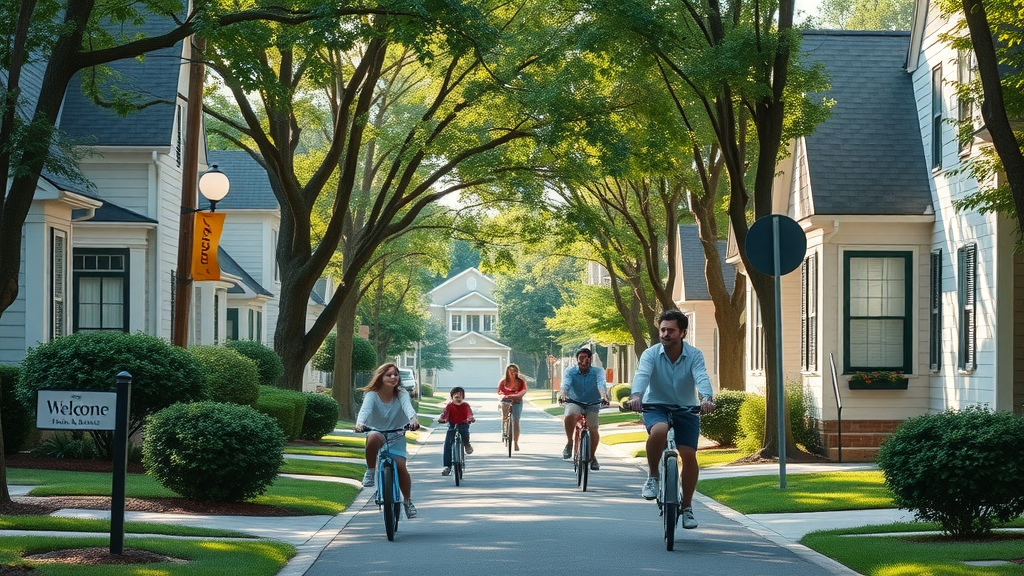
Write A Comment